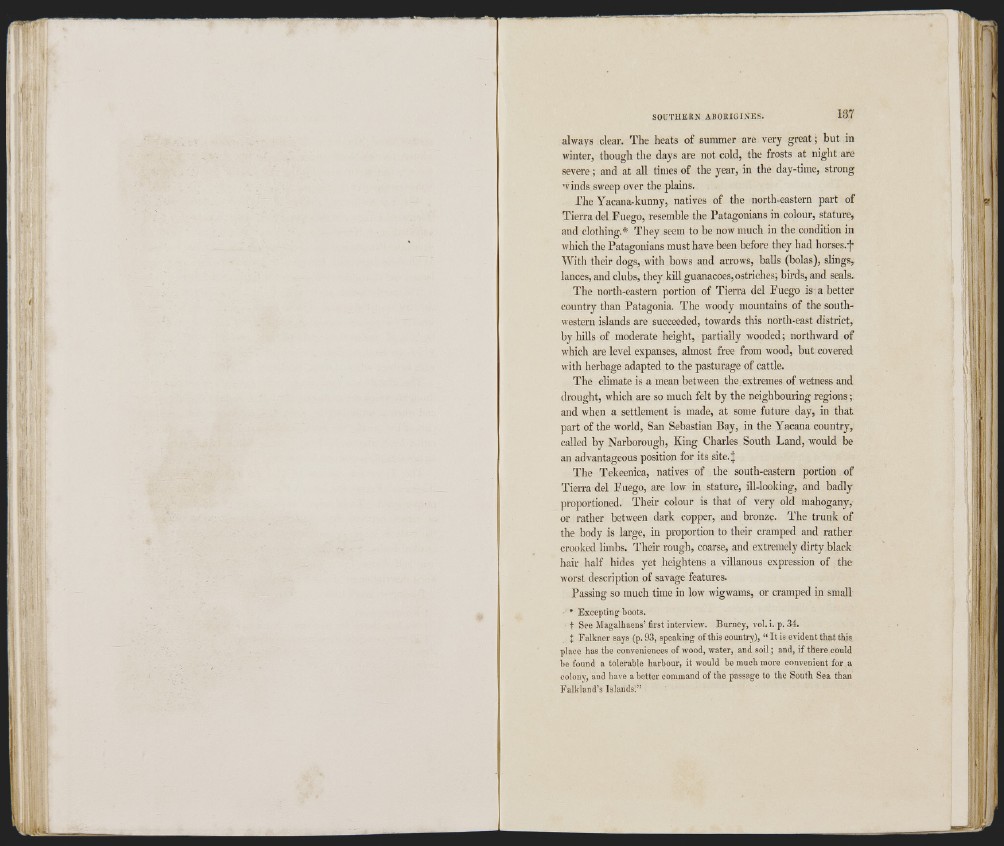
SOUTHEltN ABORIGINES. 137
;
n..
always clear. The heats of summer are yery great; but in
winter, though the days are not cold, the frosts at night are
seyere ; and at all times of the year, in the day-time, strong
winds sweep oyer the plains.
The Yacana-kunny, natives of the north-eastern part of
Tierra del Fuego, resemble the Patagonians in colour, stature,
and clothing.* They seem to be now much in the condition in
which the Patagonians must have been before they had horses.-f-
AVith their dogs, with bows and arrows, balls (bolas), slings,
lances, and clubs, they kill guanacoes, ostriches; birds, and seals.
The north-eastern portion of Tierra del Fuego is a better
country than Patagonia. The woody mountains of the southwestern
islands are succeeded, towards this north-east district,
by hills of moderate height, partially wooded; northward of
which are level expanses, almost free from wood, but covered
with herbage adapted to the pasturage of cattle.
The climate is a mean between the extremes of wetness and
drought, which are so much felt by the neighbouring regions;
and when a settlement is made, at some future day, in that
part of the world, San Sebastian Bay, in the Yacana country,
called by Narborough, King Charles South Land, would be
an advantageous position for its site.]
The Tekeenica, natives of the south-eastern portion of
Tierra del Fuego, ai-e low in stature, ill-looking, and badly
proportioned. Their colour is that of very old mahogany,
or rather between dark copper, and bronze. The trunk of
the body is large, in proportion to their cramped and rather
crooked limbs. Their rough, coarse, and extremely dirty black
liair half hides yet heightens a villanous expression of the
worst description of savage features.
Passing so much time in low wigwams, or cramped in small
* Excepting- boots.
+ See Magalhaens’ first interview. Burney, vol.i. p. 34.
X Falkner says (p. 93, speaking of this country), “ It is evident that this
place has the conveniences of wood, water, and soil; and, if there could
he found a tolerable harbour, it would he much more convenient for a
colony, and have a better comm-and of the passage to the South Sea than
Falkland’s Islands.”
, |i